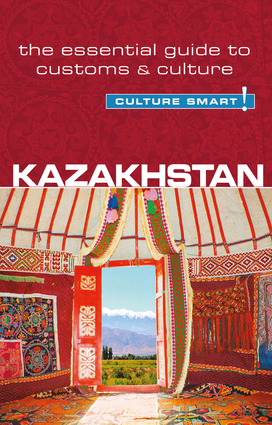Overview
Kazakhstan, one of the largest countries on earth, was long hidden from the rest of the world behind the Iron Curtain, and continued to remain unnoticed among the “stans” of Central Asia that gained independence from the Soviet Union in the early 1990s. Now, twenty years later, it has emerged as a modern state with far-reaching ambitions. It has developed rapidly over the last decade, raising a brand-new capital in the middle of its vast, empty grasslands, and stepping up to take the leading position in the region. Blessed with great reserves of oil, gas, and mineral resources, it is politically and economically stable, and the richest country in Central Asia. The seemingly endless expanse of the Kazakh Steppe takes visitors by surprise. In the east and southeast the terrain eventually changes to picturesque highlands and mountains, providing natural habitats for a number of rare animal and bird species. Once home to ancient civilizations, this immense land has yielded a wealth of archaeological artefacts. The modern Kazakh people emerged from the rise and fall of a succession of medieval Turkic states before being absorbed into the Russian Empire. They were pastoral nomads, self-sufficient, free, and famously adaptable. Their openness and generosity of spirit have survived against all the odds of a grim history. Today Kazakhstan is open for business, and receptive again to outside cultural influences. Culture Smart! Kazakhstan introduces Western readers to this complex, unknown people. It guides you through their traditions, customs, and social values. It describes how they behave at work, at home, at leisure, and on the street, and what they eat and drink. There are vital tips on communicating, and invaluable insights into Kazakhstan’s dynamic business culture and economy.
Author Biography
Dina Zhansagimova is a Kazakh journalist living in Almaty. After graduating in economics from the Kazakh State University, and gaining an MBA, she became a reporter covering news and current affairs for Kazakh television companies. She then joined the UN Development Program to work on social development projects in Kazakhstan, traveling to some of the most remote regions of the country. In 2003 she was invited to London by the BBC World Service to broadcast news programs in Kazakh. Later she moved to the BBC World Service Trust, the BBC’s international development charity, where she ran a number of media projects in Eurasia, before eventually returning to Almaty. She currently works for the British Council in Kazakhstan.


